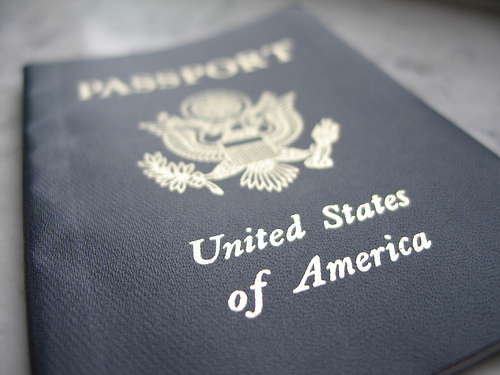
Unless one is being criminally investigated, current guidelines allow U.S. residents to apply for and receive a U.S. Passport. The buzz in the tax community suggests that could soon change. It appears to be based upon a Government Accountability Office (GAO) report from March of last year. Failure to comply with the new regulation would result in a $500 penalty. This below is from the IRS a year later.
Section 301.6039E-1(b)(1) describes the required information to be provided by passport applicants: the applicant’s full name and, if applicable, previous name; address of regular or principal place of residence within the country of residence and, if different, mailing address; taxpayer identifying number (TIN); and date of birth. Section 301.6039E-1(b)(2) provides that the required information must be submitted with the passport application, regardless of where the applicant resides at the time it is submitted.
On March 26, the Internal Revenue Service (IRS) proposed a new regulation for the passport application process under the guise of the Paperwork Reduction Act. As they deemed it “not a significant regulatory action as defined in Executive Order 12866,” they decided a regulatory assessment was not required.
This document contains proposed regulations that provide information reporting rules for certain passport applicants. These regulations do not provide information reporting rules for individuals applying to become permanent residents (green card holders). This document also withdraws the notice of proposed rule-making (57 FR 61373) published in the Federal Register on December 24, 1992.
The collections of information contained in this notice of proposed rule-making have been submitted to the Office of Management and Budget for review in accordance with the Paperwork Reduction Act of 1995 (44 U.S.C. 3507(d)) and, pending receipt and evaluation of public comments approved by the Office of Management and Budget under control number 1545-1359.
Among other considerations, the proposed change would seem to make it clear the new information will be used for “tax compliance” purposes.
Comments are specifically requested concerning:
The collection of information in these proposed regulation is in § 301.6039E-1(b). The information is required to be provided by individuals who apply for a United States passport or a renewal of a United States passport. The information provided by passport applicants will be used by the IRS for tax compliance purposes.
The GAO report cited above was explicit in terms of what it was looking into. Though it primarily looked at a small number of supposedly high risk instances, the new regulation would apply to everyone, excluding those on official government business. They do always seem to manage to exclude themselves from new laws and regulations, somehow.
Potential for Using Passport Issuance to Increase Collection of Unpaid Taxes
According to the Internal Revenue Service (IRS), as of the end of fiscal year 2010, the balance of reported unpaid federal taxes was about $330 billion. Given the many challenges that IRS faces, the enforcement of the tax laws and the tax code is on GAO’s list of high-risk areas. GAO was asked to (1) determine, to the extent possible, the magnitude of known unpaid federal taxes for individuals who were issued passports in fiscal year 2008; and (2) identify examples of passport recipients who have known unpaid federal taxes. GAO reviewed data from the Department of State (State) and IRS. To identify examples for detailed audit and investigation, GAO chose a non representative selection of 25 passport recipients based on a number of factors, including amount of taxes owed. These case studies were chosen, among other things, by the more egregious amount of federal taxes owed and cannot be generalized beyond the cases presented.
Ironically, a year old report indicated that more people than ever seem to be willing to give up their U.S. citizenship due to concerns from the IRS.
More U.S. Citizens Toss Passports as IRS Seeks Hidden Assets
The number of U.S. taxpayers renouncing their citizenship more than doubled to 1,534 in 2010 from 742 in 2009, according to the Internal Revenue Service. More taxpayers renounced their U.S. citizenship in 2010 than in the previous three years combined, or in any year since at least 2003, according to data compiled by Andrew Mitchel, an international tax attorney in Essex, Connecticut.
The government has the right and needs to have the power to collect taxes. Whether this is a good or bad idea could be driven by other factors. If more people are willing to abandon the U.S. for tax purposes, is it indicative that Americans are becoming increasingly over-taxed, assuming most citizens pay taxes somewhere? At the same time, will the new requirement discourage some amount of international travel? And, is there anything wrong with a government that makes a decision impacting all taxpayers, while deeming it not the people’s business to know it’s happening and also excluding themselves from any new regulation? In an era when more and more people are sensing the encroachment of big government, this new action will do little to reverse that impression.

COMMENTS
Please let us know if you're having issues with commenting.